'I got to know my PM grandfather by living in his house'
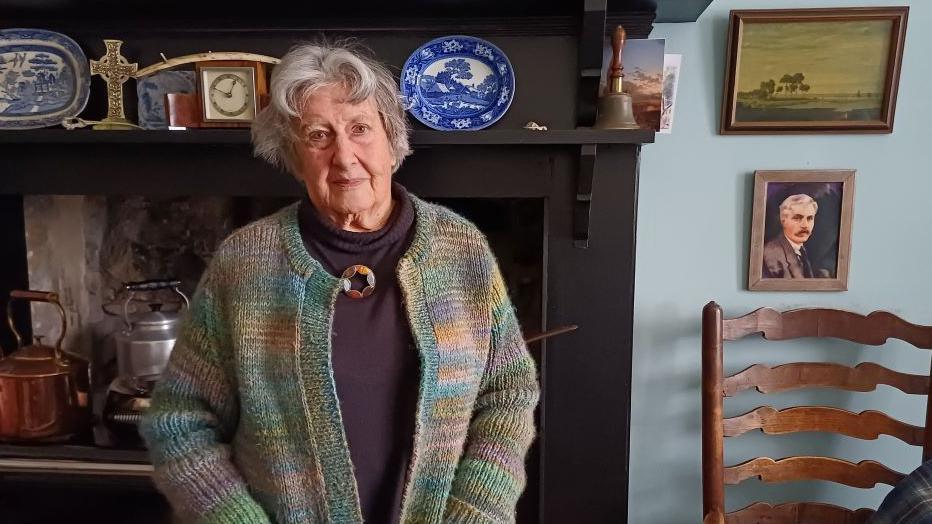
Iona Kielhorn moved into The Hillocks 17 years ago
- Published
A granddaughter of a Scots-born prime minister says she has only got to know about her grandfather by moving into a house he lived in almost 90 years ago.
James Ramsay MacDonald formed Britain's first Labour government 100 years ago on 22 January 1924.
Today, his granddaughter Iona Kielhorn lives in The Hillocks, the house he had built in his home town of Lossiemouth in 1909.
Mrs Kielhorn, with help from relatives, has kept the house almost like it was when her grandfather was alive.
MacDonald died in 1937 when Mrs Kielhorn was a young girl.
Mrs Kielhorn moved to Lossiemouth 17 years ago after a childhood in England and spending most of her adult life in Germany.
Speaking to BBC Naidheachdan, she said: "I knew nothing about Ramsay MacDonald.
"I knew that I had a prime minister grandfather, but nobody at home ever talked about him.
"Its been very educational coming to Lossiemouth."
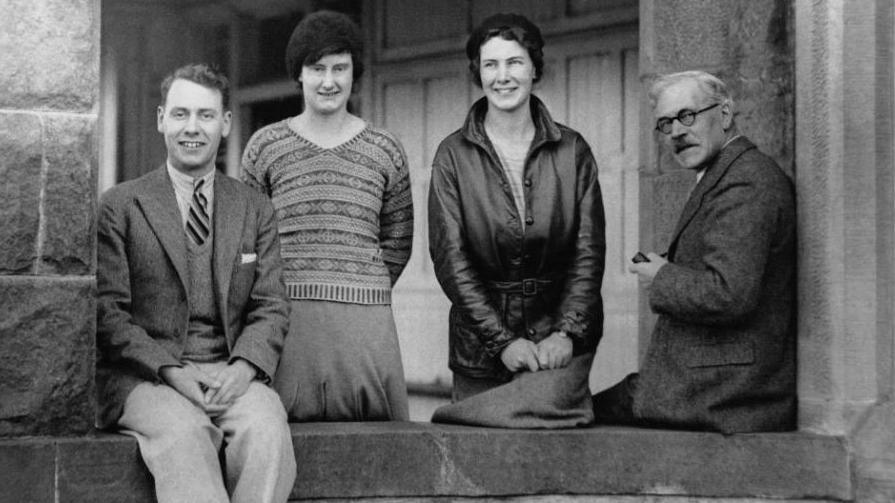
Ramsay MacDonald, right, with his family and the house in Lossiemouth in 1931
Mrs Kielhorn believes society attitudes in the past had overshadowed his achievements, which included opposing wars and appointing the first female minister. He served as PM for a second time between 1929 to 1935.
MacDonald's upbringing had been a source of controversy, and used against him during his political career.
He was the son of working class and unmarried parents. His mother was a house maid and his father a farm labourer.
A teacher at MacDonald's school in Lossiemouth, a fishing port, recognised his academic talent and encouraged him to further his education.
Mrs Kielhorn said MacDonald was warned the alternative was dangerous work as a fisherman and likely die at sea by his 30s.
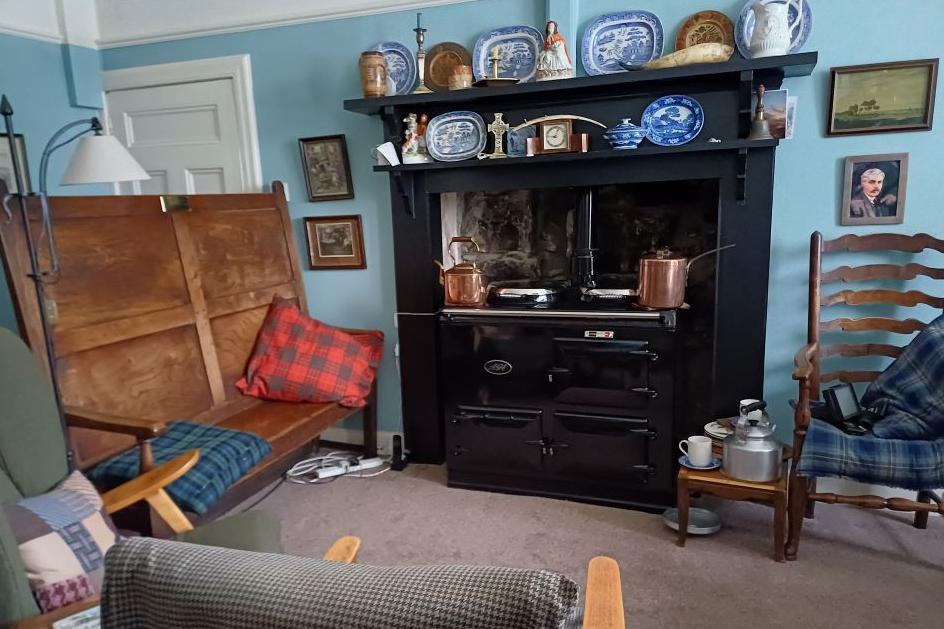
The Hillocks retains furniture and features from MacDonald's time
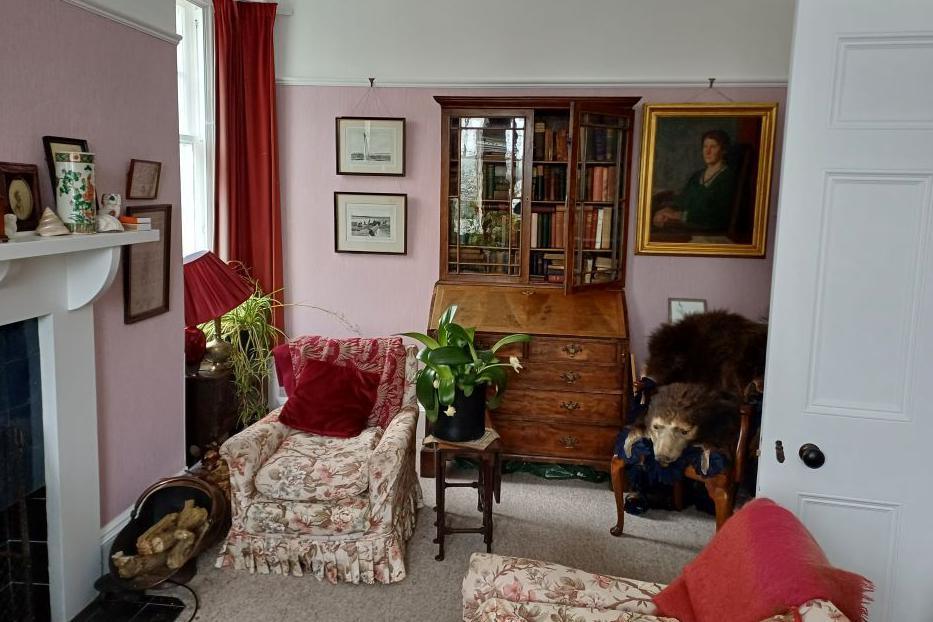
MacDonald had ambitions to become a science teacher and moved to London.
In the city he became actively involved in Socialist politics.
He drew criticism for his opposition to Britain's involvement in World War I.
Later, in 1924 during a period of political upheaval, he was asked to form a minority Labour government.
It lasted until October that year when a general election ended in defeat for Labour.
Mrs Kielhorn said Lossiemouth provided her grandfather with an escape from political tension.
But she added there were still times that were difficult for him in his home town.
MacDonald and his wife, feminist and social reformer Margaret Ethel Gladstone, wanted to build The Hillocks on a hilltop site in Lossiemouth.
The plot was near a quarry where MacDonald had collected fossils in his youth.
But Mrs Kielhorn said some people already living in the area were unimpressed by his political views and upbringing.
She said her grandfather was told to build his house in "the slums" among the town's fisherfolk.
The Hillocks was constructed in Moray Street, near Lossiemouth's Seatown fishing community.
The house was originally built for MacDonald's mother Anne so she could look after his five children while he and Gladstone were on political tours, including of Australia.
The cost of building the house, about £400, was paid for by Gladstone.
Mrs Kielhorn never met her grandmother. Gladstone died in 1911 from blood poisoning.
Following his own death - of heart failure aged 71 and while at sea on an ocean liner - MacDonald was buried alongside his wife at a graveyard in Spynie, near Lossiemouth.
The house has remained in the MacDonald family ever since.
Read Ruairidh Maciver's story on BBC Naidheachdan
- Published22 January 2024
Today, The Hillocks retains many of the features from Mrs Kielhorn's grandparents' time there.
They include the kitchen chairs, also writing tables, books, ornaments, paintings and a bath MacDonald had installed upstairs.
Mrs Kielhorn said she has no interest in politics but by living in Lossiemouth she has learned much about her grandfather's life in the town.
Stories she has been told, include of MacDonald taking a pair of wire cutters with him on walks so he could open gates a local landowner had chained up to prevent public access to land.
She said on some visits he would go on long walks in the Cairngorms with his London police officer bodyguard in tow.
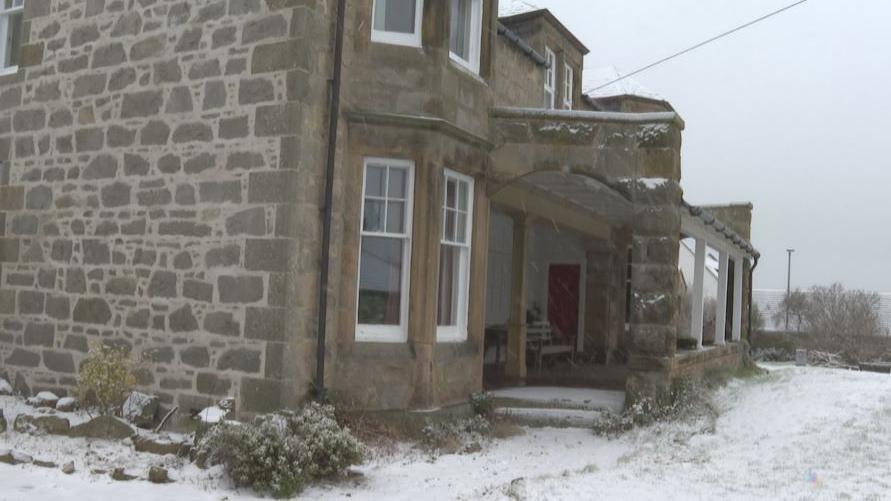
The house was built in MacDonald's home town of Lossiemouth
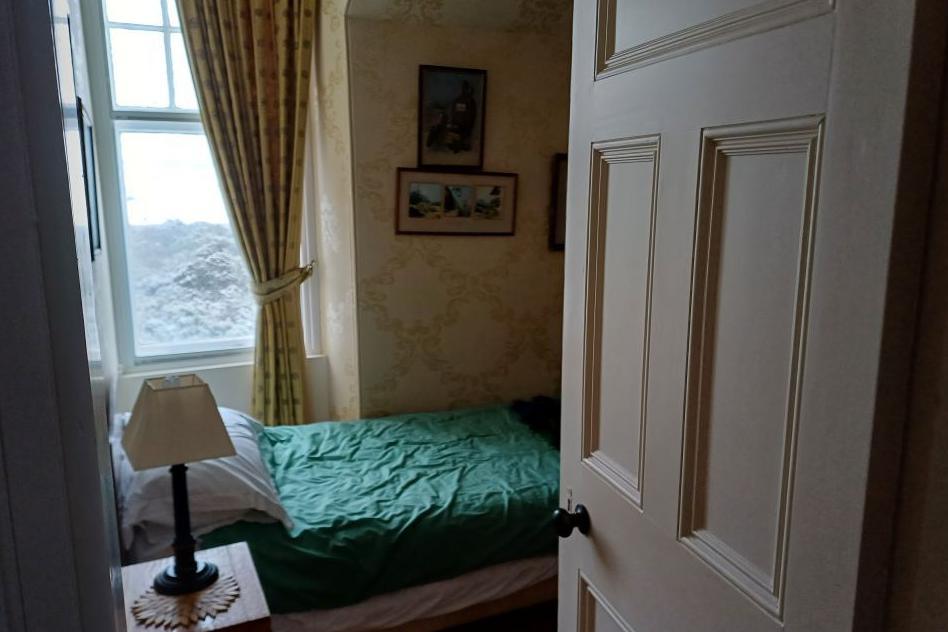
Mrs Kielhorn said: "Lossiemouth was his stabilising anchor.
"I think it was an escape.
"He loved his walking, loved bird-watching and loved collecting fossils."
She added: "He would go into Seatown and sit with the fisherfolk.
"I don't think they spoke about anything - certainly not politics.
"They would just sit there smoking their pipes."